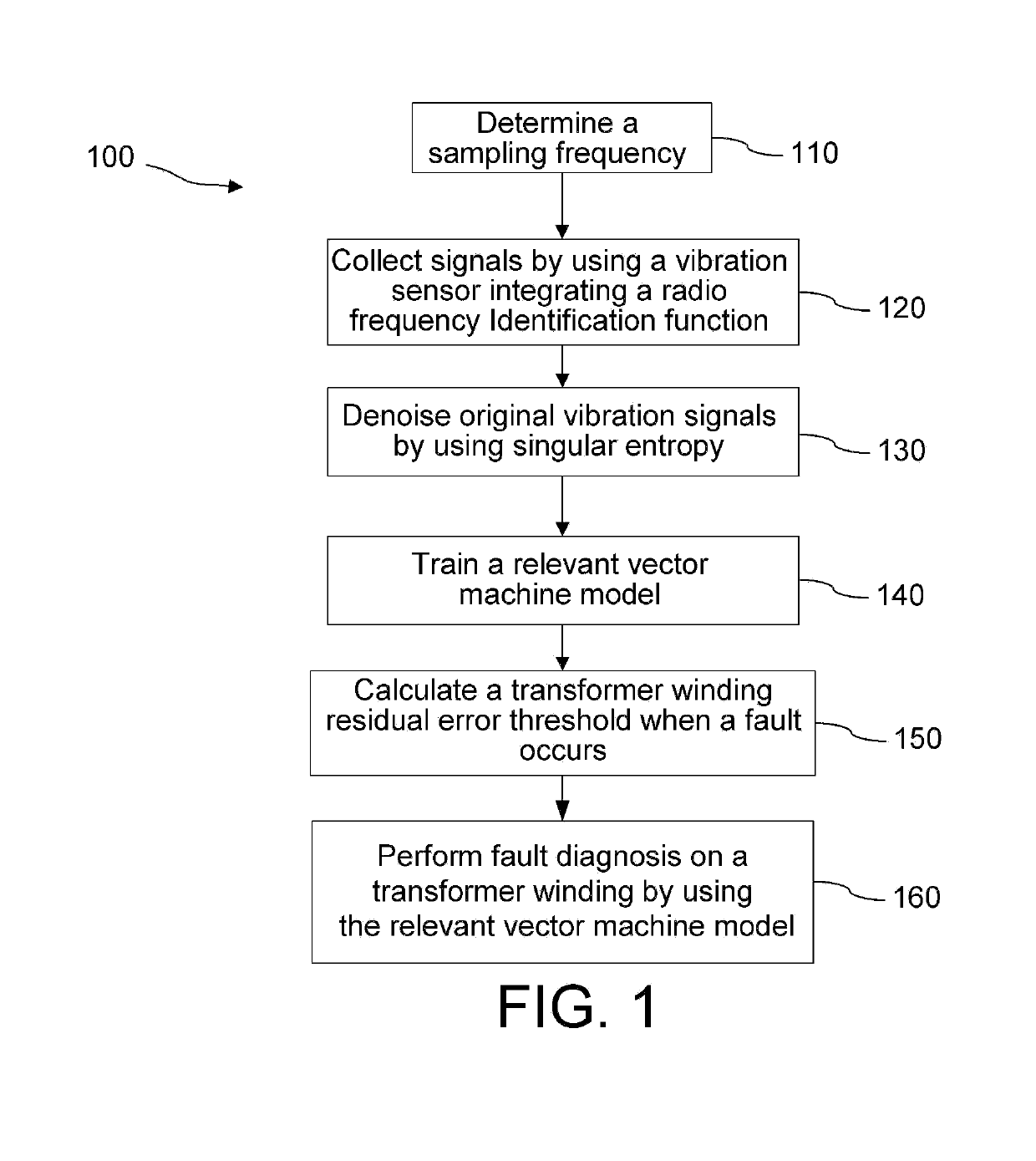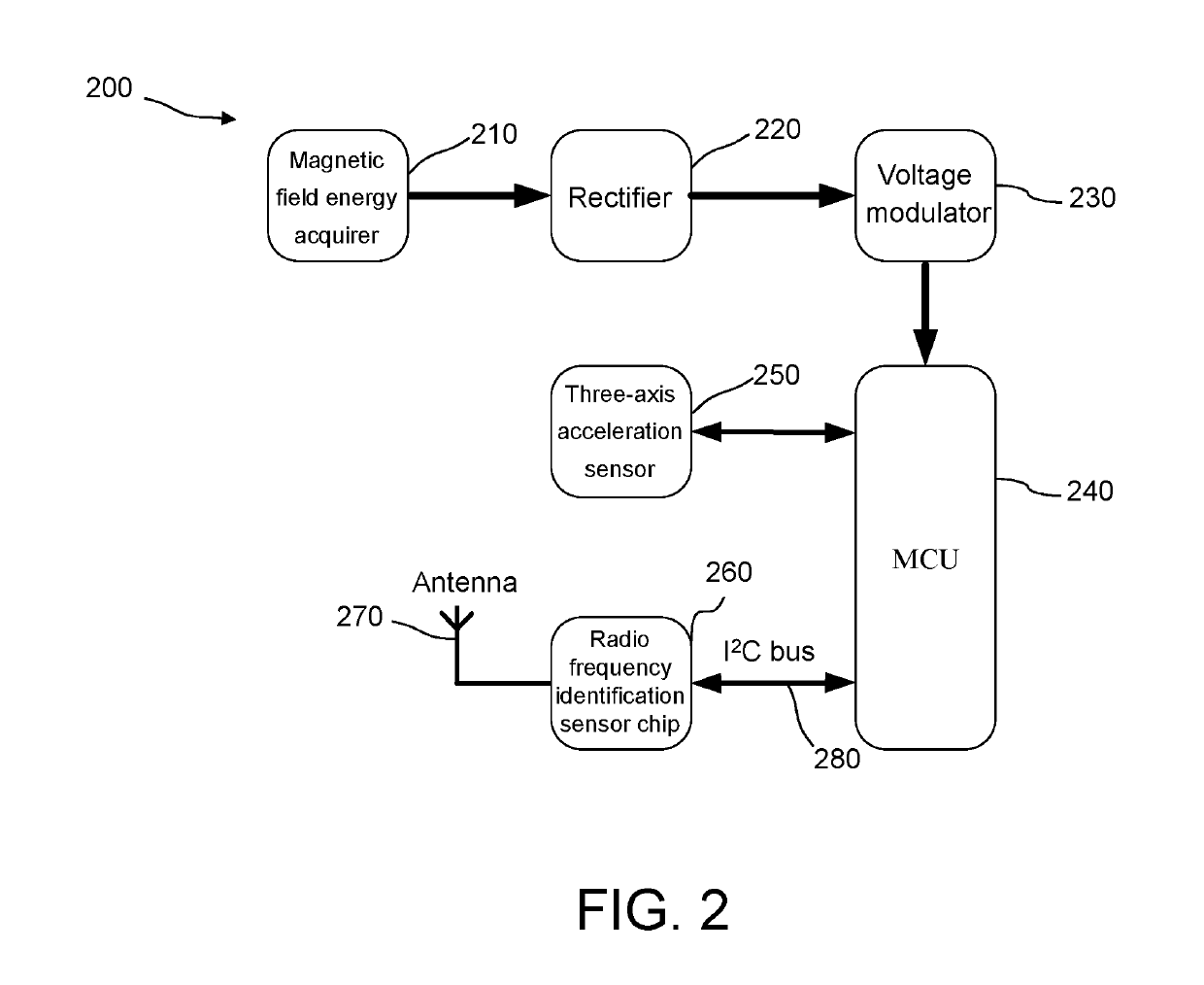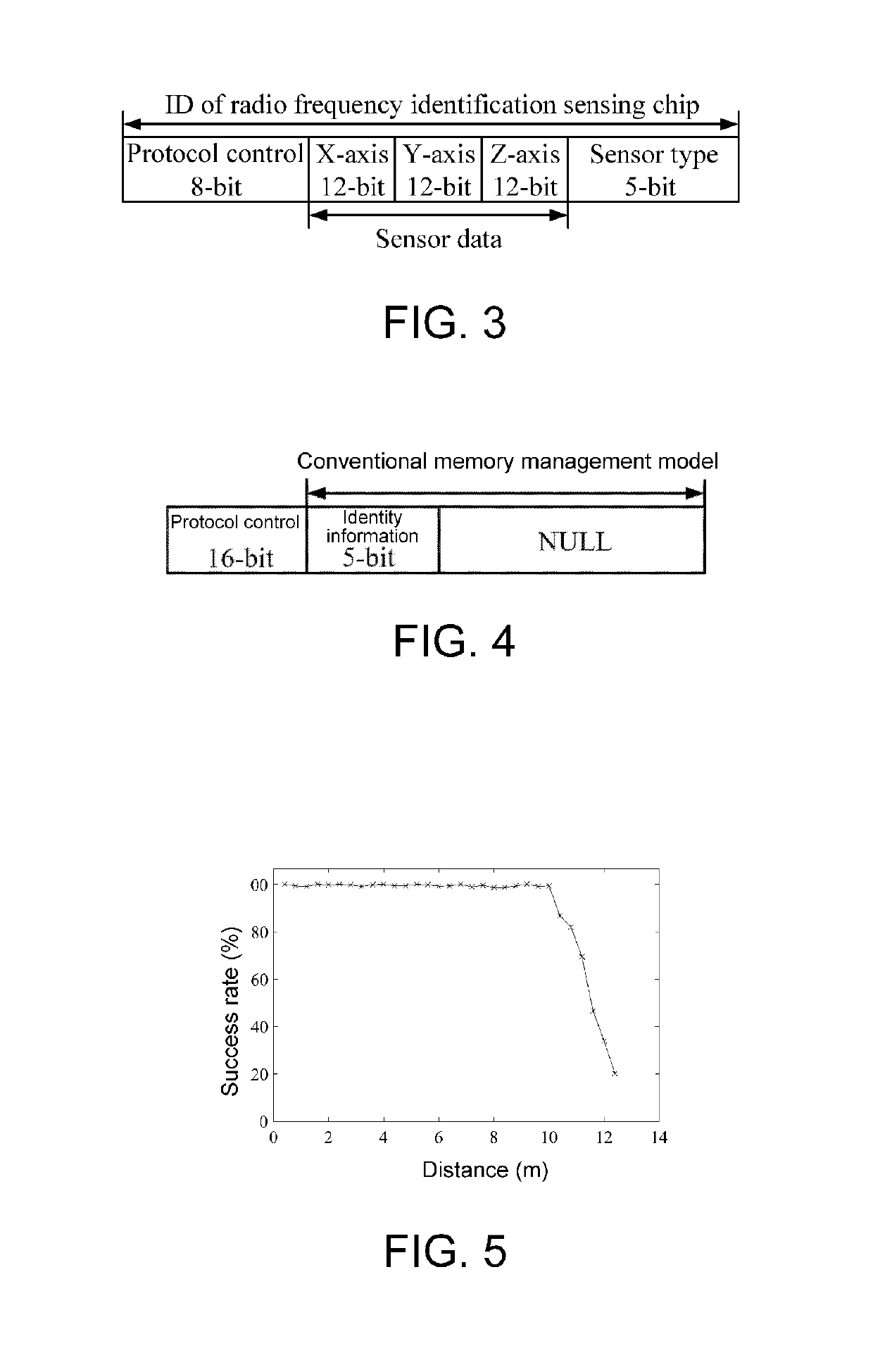Transformer winding fault diagnosis method based on wireless identification sensing
a technology of wireless identification and transformer winding, applied in the direction of electrical testing, measurement devices, instruments, etc., can solve the problems of reducing the reliability of power supply, increasing wiring costs and post-maintenance costs, and low economic benefits, so as to increase the running efficiency of a transformer and improve the efficiency. the effect of efficiency and easy implementation
- Summary
- Abstract
- Description
- Claims
- Application Information
AI Technical Summary
Benefits of technology
Problems solved by technology
Method used
Image
Examples
Embodiment Construction
[0036]Reference will now be made in detail to the present preferred embodiments of the invention, examples of which are illustrated in the accompanying drawings. Wherever possible, the same reference numbers are used in the drawings and the description to refer to the same or like parts.
[0037]The following describes technical solutions of the present invention with reference to the accompanying drawings and relatively preferable embodiments in detail. The following relatively preferable embodiments are only used for describing and explaining the present invention, but do not constitute a limitation on the technical solutions of the present invention.
[0038]Referring to FIG. 1, FIG. 1 is a flowchart 100 of a transformer winding fault diagnosis method based on wireless identification sensing according to the present invention. The method includes the following steps:
[0039](1) In step 110, determine a sampling frequency, and step 120, respectively collect, by using a vibration sensor in...
PUM
 Login to View More
Login to View More Abstract
Description
Claims
Application Information
 Login to View More
Login to View More - R&D
- Intellectual Property
- Life Sciences
- Materials
- Tech Scout
- Unparalleled Data Quality
- Higher Quality Content
- 60% Fewer Hallucinations
Browse by: Latest US Patents, China's latest patents, Technical Efficacy Thesaurus, Application Domain, Technology Topic, Popular Technical Reports.
© 2025 PatSnap. All rights reserved.Legal|Privacy policy|Modern Slavery Act Transparency Statement|Sitemap|About US| Contact US: help@patsnap.com



